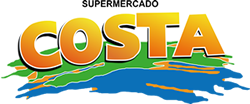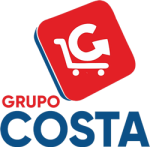In the ever-evolving realm of education, where info flows abundantly and access to knowledge is just a click away, student-driven encyclopedias are emerging as a vibrant tool in the understanding procedure.

These platforms not only offer students with a database of info however also urge them to contribute, edit, and curate content, fostering a collaborative and interactive understanding atmosphere.
As academic paradigms shift towards even more participatory and inclusive versions, the principle of student-driven encyclopedias embodies this change. These platforms encourage students to become active individuals in understanding production, bridging the gap in between typical book learning and contemporary digital resources.
The Concept of Student-Driven Encyclopedias
Student-driven encyclopedias are electronic platforms where students collectively gather, validate, and distribute information on a vast array of subjects. Unlike typical encyclopedias, which are commonly composed by experts, these systems leverage the collective initiatives of pupils to create an extensive body of understanding.
At their core, student-driven encyclopedias are designed to grow vital thinking, research skills, and electronic proficiency amongst pupils. By engaging in the process of content development, trainees discover to browse and evaluate information critically, skills that are important in today’s information-rich society.
Moreover, these systems function as a space for pupils to explore their passions and share their experience. This autonomous technique to expertise production guarantees that a diverse range of viewpoints and voices are stood for, enriching the finding out experience for all individuals.
- Students acquire hands-on experience in study and material production.
- Encourages partnership and peer interaction.
- Promotes a e-learning deeper understanding of subject matter.
- Fosters inclusivity and variety in expertise representation.
In essence, student-driven encyclopedias change pupils from passive receivers of info into energetic contributors, instilling a sense of ownership and obligation in their educational journey.
Advantages of Student-Driven Encyclopedias
One of the primary benefits of student-driven encyclopedias is the advancement of important 21st-century skills. As students take part in the procedure of content production, they refine their important reasoning, electronic proficiency, and interaction skills, all of which are essential in today’s interconnected globe.
In addition, these systems encourage a collective understanding environment, where pupils can collaborate to verify information, discussion different perspectives, and co-edit write-ups. This peer-to-peer interaction not just improves discovering outcomes yet likewise fosters a feeling of community and common respect amongst pupils.
Additionally, student-driven encyclopedias offer a platform for showcasing pupil job. As students contribute to the encyclopedia, they construct a profile of their study and writing, which can be important for more academic and expert quests.
Obstacles and Limitations

Despite the various advantages, student-driven encyclopedias also encounter specific difficulties. Ensuring the accuracy and integrity of details is extremely important, as these platforms rely upon payments from trainees that might not yet possess expert-level knowledge.
- Keeping material high quality and precision.
- Supplying ample guidance and guidance.
- Ensuring equitable access and inclusivity.
To reduce these obstacles, several student-driven encyclopedias execute a system of checks and balances, where web content is assessed by instructors or specialists prior to magazine. This guarantees that the information presented is both accurate and credible, upholding the honesty of the system.
The Future of Student-Driven Encyclopedias
As innovation remains to advancement and the landscape of education and learning evolves, the possibility for student-driven encyclopedias is substantial. These platforms have the capability to not just enhance conventional educational resources yet likewise redefine the way knowledge is acquired and shared.
In the future, we may see student-driven encyclopedias incorporating advanced modern technologies such as artificial intelligence and artificial intelligence to enhance content curation and personalization. Furthermore, they may expand past textual info to consist of multimedia web content, using an extra immersive understanding experience.
Encouraging the Future Generation
Student-driven encyclopedias hold the promise of equipping the next generation of learners. By placing students at the helm of expertise creation, these platforms urge long-lasting knowing, inquisitiveness, and intellectual independence.
Finally, as academic systems remain to innovate, student-driven encyclopedias stand as a testament to the power of collaboration and the value of pupil agency in the understanding procedure. By embracing these systems, we unlock to a more inclusive, appealing, and dynamic academic experience for all.




